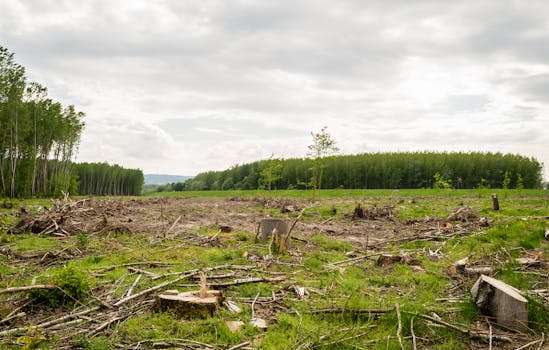
Introduction

The impact of climate change on global ecosystems is profound and alarming. As temperatures rise and weather patterns shift, ecosystems are forced to adapt rapidly or face collapse. This article delves into the various ways climate change affects biodiversity, habitats, and ecological interactions.
Effects on Biodiversity

Climate change leads to habitat loss and fragmentation, pushing many species towards extinction. Warmer temperatures alter migration patterns, breeding seasons, and food availability, disrupting the delicate balance of ecosystems. For instance, polar bears rely on sea ice for hunting seals, their primary food source. As ice melts, their hunting grounds diminish, threatening their survival.
Impact on Marine Ecosystems

Oceans absorb much of the excess carbon dioxide from the atmosphere, leading to ocean acidification. This phenomenon affects marine life, particularly coral reefs, which are highly sensitive to changes in pH levels. Coral bleaching events, driven by rising sea temperatures, result in the loss of biodiversity and the collapse of reef ecosystems, which provide crucial resources for countless marine species.
Altered Weather Patterns and Ecosystem Resilience

Increased frequency of extreme weather events such as hurricanes, droughts, and wildfires poses significant threats to ecosystems. These events can result in immediate destruction of habitats and long-term changes in species composition. Ecosystems that are resilient can recover from disturbances, but climate change is outpacing the ability of many systems to adapt.
Conclusion

The impact of climate change on global ecosystems is a pressing issue that requires immediate action. Protecting and restoring habitats, reducing greenhouse gas emissions, and promoting biodiversity are essential steps in mitigating these effects. By understanding the interconnectedness of climate change and ecosystem health, we can work towards a more sustainable future.






